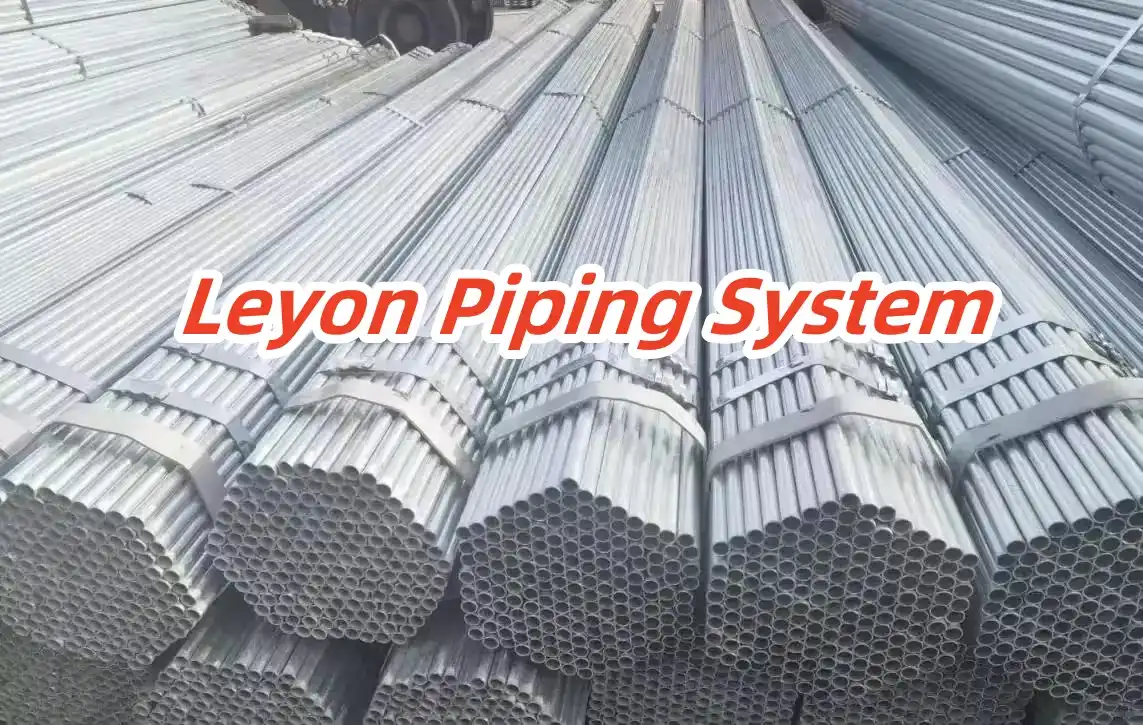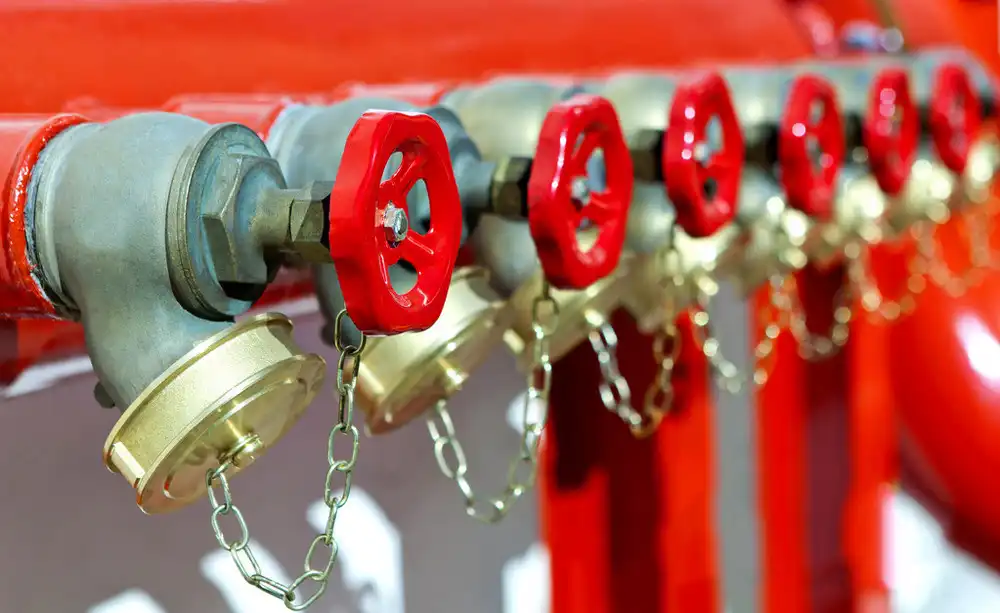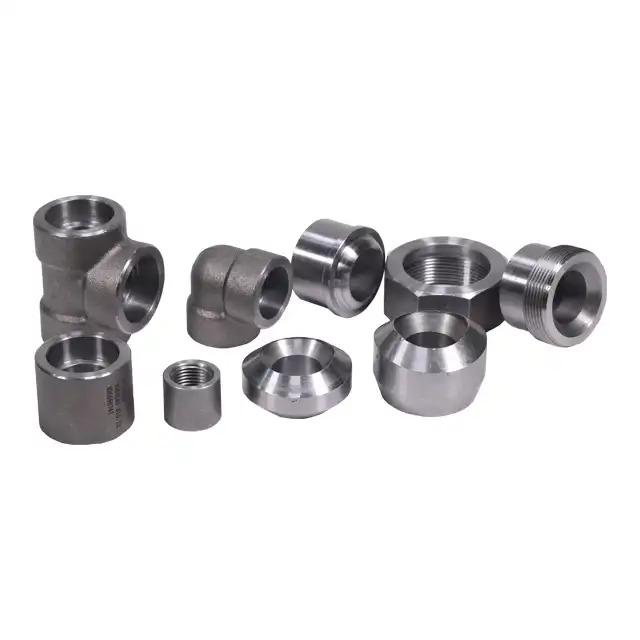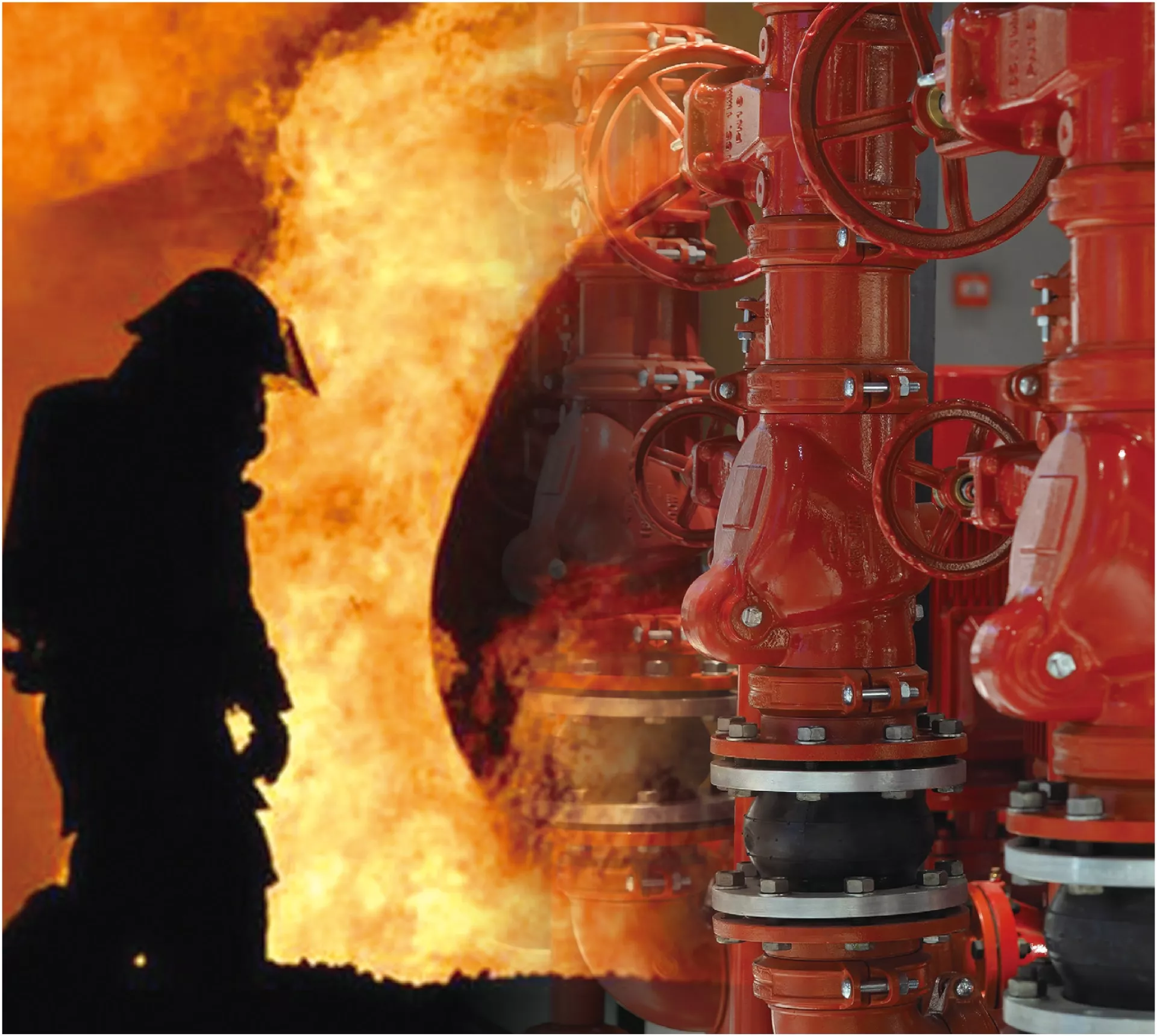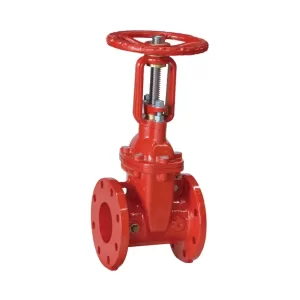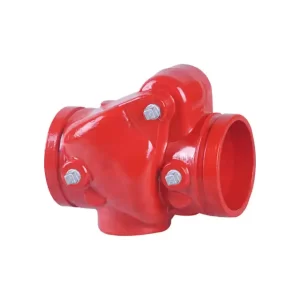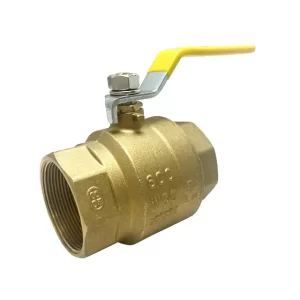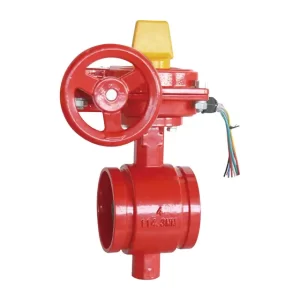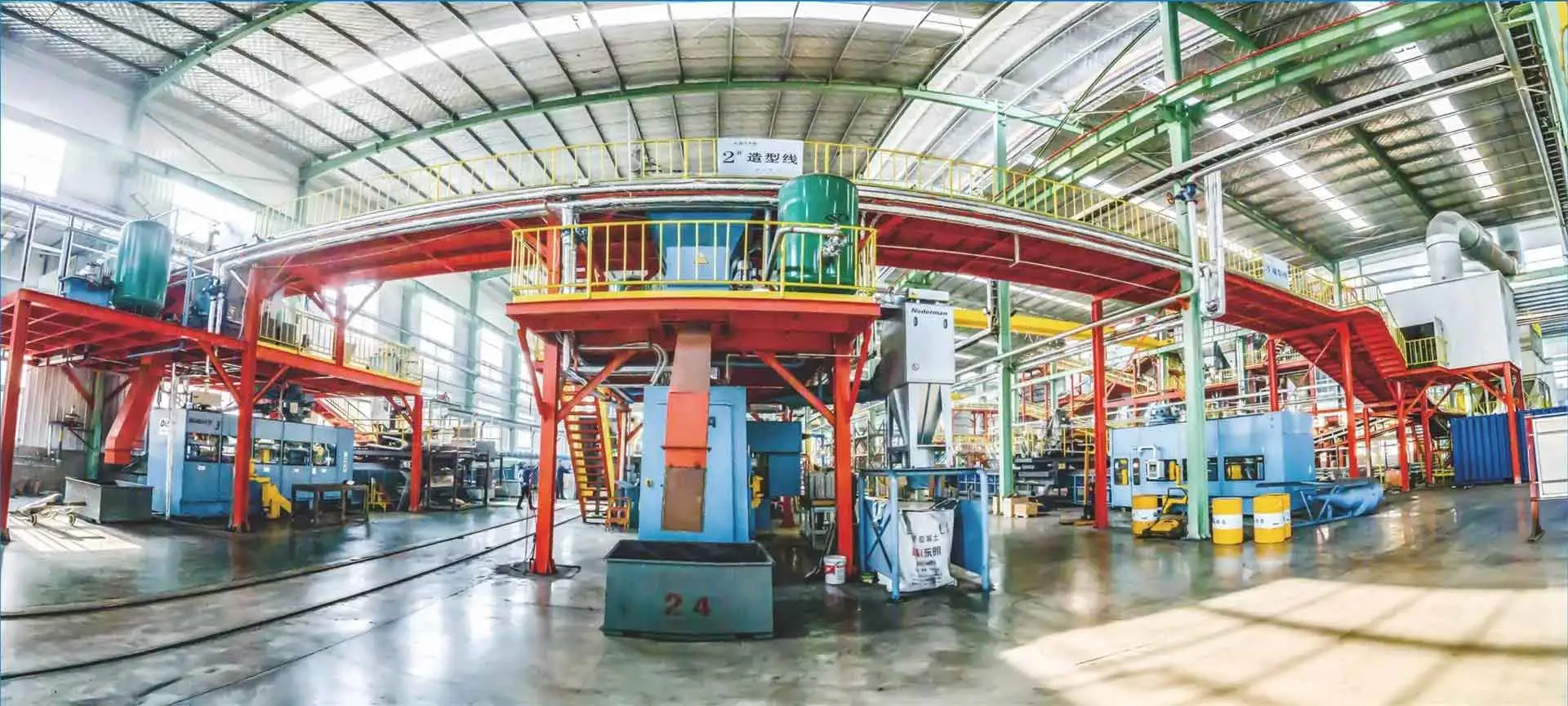Firefighting systems are essential for safeguarding lives and property against fire hazards. A critical component of these systems is the array of valves used to control, regulate, and direct water flow. Understanding the various types of valves and their roles within a fire protection system is crucial for both design and maintenance. Below, we’ll explore some of the most common valves used in fire fighting systems.
1.Gate Valves
Gate valves are among the most widely used in fire protection systems. These valves operate by lifting a gate (a flat or wedge-shaped disc) out of the path of the water flow. When fully open, gate valves allow unobstructed water flow, making them ideal for isolating sections of the fire protection piping network. They are typically used in applications where the valve is either fully open or fully closed. Gate valves, particularly those with OS&Y (Outside Screw and Yoke) design, are preferred because their open or closed status can be easily determined by the position of the screw and yoke.
2.Check Valves
Check valves are crucial for preventing backflow in fire fighting systems. They allow water to flow in one direction only, automatically closing if the flow reverses. This function is vital in maintaining system integrity and preventing contamination or damage. Swing check valves, with their hinged disk that swings open when water flows in the correct direction, are commonly used in fire protection systems due to their reliability and simple design.
3.Ball Valves
Ball valves use a spherical disc (the “ball”) to control the flow of water. When the ball’s hole is aligned with the flow direction, the valve is open, and when the ball is rotated 90 degrees, the valve is closed. Ball valves are known for their durability and excellent sealing capabilities, which make them ideal for emergency shutoff situations. They are often used in smaller diameter pipes within fire protection systems and are valued for their quick operation and reliability.
4.Butterfly Valves
Butterfly valves are another type of quarter-turn valve that uses a rotating disk to regulate flow. They are particularly popular in large-diameter piping systems due to their compact design and ease of operation. Butterfly valves are generally lighter and less expensive than gate or globe valves, making them a cost-effective option for controlling water flow in fire fighting systems. They are often used as isolation valves in fire sprinkler systems, where space constraints and cost are considerations.
Conclusion
Each type of valve in a fire fighting system serves a specific purpose, contributing to the overall safety and efficiency of the system. Understanding the roles and functionalities of these valves can help in the proper design, selection, and maintenance of fire protection systems. By ensuring that the right valves are used and maintained properly, one can significantly enhance the effectiveness of the firefighting system, ultimately safeguarding lives and property from the devastating effects of fire.

